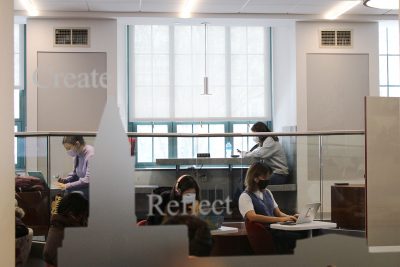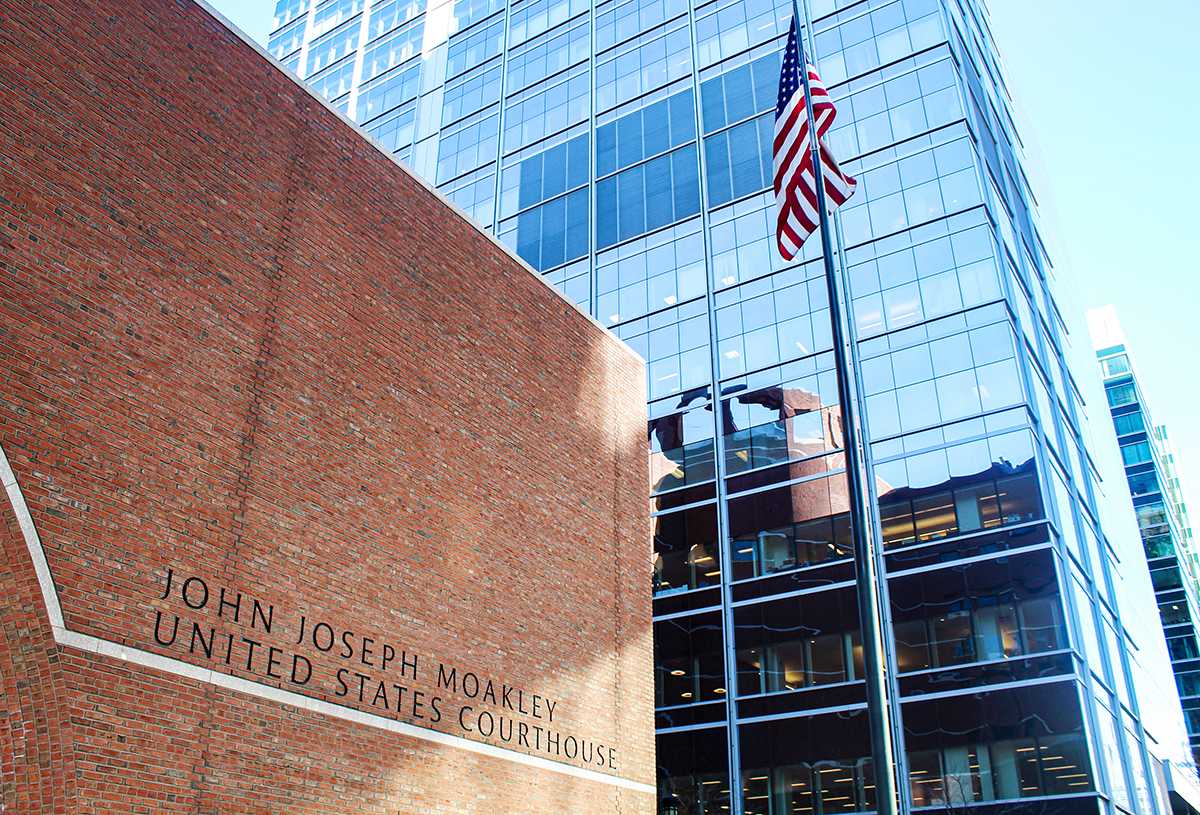
Boston University students will no longer be required to wear masks in classes or test weekly after the last day of finals, May 13, according to a Thursday email from BU Healthway.
This date was chosen in anticipation of lower case counts, wrote Judy Platt, director of Student Health Services and chief health officer, in an email.
“Our community has been very responsive to our protocols and this has helped us countless times during this pandemic,” Platt wrote.
Masks will continue to be required on the BU Shuttle and in all healthcare facilities. Starting Sunday, April 3, COVID-19 testing will no longer be available over the weekends. Moreover, after May 23, only symptomatic testing will be available on campus, according to the email.
Further details on this process will be communicated later in the semester.
“The number of people who choose to test on the weekends is much lower than those who test during the week,” Platt wrote. “This decision will prioritize staff coverage when there is the most demand.”
After June 1, BU will stop providing on-campus isolation housing and students who test positive for COVID-19 will be required to isolate at home. Students are encouraged to return to their permanent residence to complete the isolation period.
“This date is well past the last day of finals and will also help to ensure that anyone who tests positive before Commencement has an opportunity to move to isolation housing,” said Platt.
Ella Moran, a freshman in the College of Arts and Sciences, said mask-wearing is not an inconvenience, adding she is worried that “going completely maskless is going to cause things to get worse again.”
“It will keep going through those cycles,” Moran said. “Everything calms down and restrictions get lifted, and then it flares back up and they are put back in place.”
Emma French, a sophomore in the College of Communication, said she is not sure if she will continue to wear a mask in class next semester but is concerned about new variants causing a rise in cases.
“It is good to see the University going forward and trying this out because COVID is becoming less deadly,” French said. “But it is also concerning because there are rumors of another wave coming or more variants.”
A subvariant of the omicron variant, BA.2, has been spreading throughout the United States since Feb. 5, as reported by CNBC. However, health officials expect that the combination of high vaccination rates and the level of immunity from the omicron outbreak will prevent another surge in cases.
Moran said she thinks the absence of isolation housing will cause COVID-19 to spread more rapidly through roommates who cannot isolate from one another.
“If I get sick I don’t want to have my roommate get sick,” Moran said. “I don’t want that to impact her life.”
French said she does not think isolation housing is needed anymore, “unless there is another variant.”
While he does not think mask mandates should be completely lifted just yet, CAS sophomore Reshab Chhabra noted BU’s previous decision to lift mask mandates in most places has not led to an increase in cases.
“I can see why they ultimately decided to do [life the mask mandate] because a lot of in-person or social activities have not resulted in many cases,” Chhabra said.
COVID-19 cases on campus have been steadily decreasing since the start of spring semester. There has been no major spike since students returned from spring break and BU reported a positivity rate of 1.09% Wednesday.
“We monitor trends and our internal data continuously as we strive to keep a focus on health and safety for the community,” Platt wrote.
BU spokesperson Colin Riley wrote in an email that the compliance of the community in adhering to the University’s COVID-19 protocols allowed BU to continue holding classes in-person up to this point.
“Let’s hope that we have reached an endemic stage of the virus,” he wrote. “I, for one, am happy to put these past two years in the rearview mirror.”





























































































































